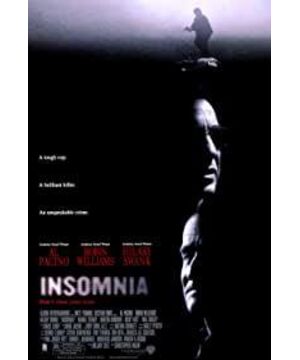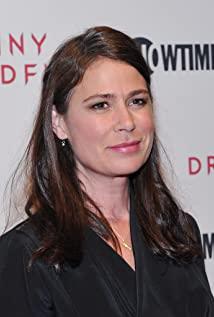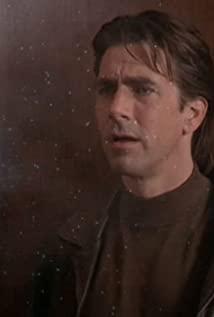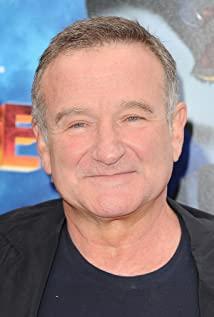【! ! ! Serious spoiler warning: This article contains serious spoilers for the four films directed by Christopher Nolan, "Following", "Memento", "Insomnia", "Deadly Magic", please consider carefully! 】
content
1 "Follow"
2 "Memory Fragments"
3 "Insomnia"
4 "Deadly Magic"
5 Summary
6 epilogue
text
1 "Follow"
When I rewatched Christopher Nolan's first feature film, "Following" (1998), I was once again caught up in the question of why Chris' early work was so different from today's ? Why is the world always cruel in his early films, and then more and more radiant, full of warmth and hope? How exactly did the transformation happen? Reflecting on these questions, especially the last one, brings me back to some of Chris's early works.
This is not the first time I have tried to answer this question, and this time, the original intention of my statement in this article is actually to identify the trajectory of this transformation as coherently as possible at the image level (but limited to various reasons, The "trajectories" from this interpretation may not be ideal and concise enough). Although this article mainly only captures the span of four feature films, I think that the inspection of these four feature films is enough to outline a transition trajectory with obvious directions.
I would also like to stress again that, in order to identify and outline the trajectory of this transition, this article will inevitably involve serious spoilers for these four films, and I would like to remind readers who do not mind spoilers that there is still a chance to leave field!
2 "Memory Fragments"
In many ways, Memento (2000) is similar to works such as Follow. Playing and being played with, routine and being routine, manipulated and manipulated, deceived and deceived, ridiculed and ridiculed, despised and despised, frustrated and frustrated, small abacus and big abacus, reversal and repetition, memory and forgetting, Meaning and emptiness, ignorance and omniscience... Consider that Memento is based on a short story conceived by Jonathan Nolan (Based on the short story by Jonathan Nolan), and is set in Jonathan's TV series Westworld. World)" (2016-?) can still be seen in these familiar feelings, and I think there is still reason to guess that this style belongs to Jonathan; or rather, because Chris shot these scenes himself in the early days. Most of the films, especially "Following", were signed by only Chris himself, so perhaps it should be said that this is also Chris's early style - the styles of the two brothers may have been highly similar or even overlapped in the early days.
The protagonist, Leonrad, who lost his wife in the film, wants revenge. His basic situation is: not knowing who to believe, struggling to find answers, finally getting close, being told the truth, difficult to accept... As mentioned earlier, this Familiar recipes, you can not only taste in "Memento", but also encounter repeatedly in "Westworld". One of the dramatic manifestations of the difficulty in accepting the truth is, "refuse to admit, turn a blind eye, and even kill others with one shot"; and it is very interesting that the "one bullet" in the same film is placed in Christopher's creation In the context, it will eventually show a different meaning from Jonathan. Memento alone obviously doesn't tell the difference, so we can continue to follow Chris' veins.
3 "Insomnia"
A passage in Insomnia (2002) is the direct source of the idea of this article: the protagonist, as a police detective, leads a team to raid the residence of the fugitive, and then goes down into a dark and small waterway at the bottom of the house in the pursuit, followed by He suddenly entered the vast fog of the strange forest. In this white expanse, the protagonist knocked him down with one shot, and then approached to check, only to find that the one he knocked down was actually the partner who went on the mission together.
I seriously underestimated the importance of Insomnia, directed by Chris, because I thought that neither of the Nolan brothers were credited writers on the film (in fact, they were not credited, but Christopher mentioned that he was working with Hillary When Seitz worked on the script for "Insomnia," he kept his usual practice of writing the final draft himself, "so I can filter everything through my brain, my fingertips, my computer, etc., It makes me feel like these things are my own, and I'm tied to me.") (Christopher Nolan, The Nolan Brothers Dialogue. "Inception: The Shooting Script") But when I was confused by the above mentioned When I arrived at this episode, I gradually discovered that if I put it into the overall context of Chris's works, the questions in it can be better answered.
"Down", "Darkness", "Water", "Unfamiliar", "Forest", "Mist"... These elements can all be interpreted as symbols of the "subconscious mind", especially when they appear so densely, their The meaning is even stronger; at the same time, the state of hazy chaos is also a typical feature of the beginning of the creation myth, and we only need to think about the story of Pangu Kaitian. So, in other words, we can think that what the protagonist suddenly penetrates in this plot is his own inner depths, and thus begins a mythical journey.
Then, a question arose immediately. In this foggy hazy state, the protagonist shoots in a daze, and who is the "partner" who is knocked down? If we regard the "partner" as an image of the protagonist's own heart, then from experience, a reasonable guess is that this "partner" may symbolize the other side of the protagonist that has not yet been discovered. Conflicting, but qualities that can be integrated; but if not integrated, these "partners" may recur with shock.
If this line of thinking seems too jumpy, then take a look. Christopher himself did mention in his conversation with Jonathan that being "partnered" and "betrayed" is a common routine in "stealing films" (quoted ibid.) ; We may also wish to link the four films for a brief look: "I" and "Cobb" in "Follow", "I" and "Teddy" in "Memento", "Insomnia" in "I" and "Teddy". Explore partners, do the two magicians in "Deadly Magic" both mean "partners", and there are conflicts and even betrayals between "partners"?
4 "Deadly Magic"
Similar to the previous situation, just looking at "Insomnia", it is difficult for us to think of what the "partner" in "my heart" that the protagonist knocked down with one shot may symbolize specifically, but the context of the connection before and after, this The problem will gradually become clear.
In The Prestige (2006), more than one bullet is exchanged between the two protagonists. Shortly after the film begins, Angier, played by Hugh Jackman, loses his wife and asks whether Borden, played by Christian Bale, gave the rope in an unexpected escape trick. What kind of knot is tied, and probably also wants to hold the latter accountable, but Bolton said he didn't know; Bolton also recorded in his diary that half he knew, half he didn't know; this kind of semi-unclear state Is the death knot under the knot a bit similar to the previous shooting in the fog in "Insomnia"? Later, when Bolton was about to perform the magic of "catching a bullet with bare hands", Angel, who came to ask questions and take revenge, sabotaged the performance, causing Bolton to be injured in an accident, and some of the audience quickly laughed. At the end of the film, the identities of the shooter and the shooter are reversed. This time, it was Bolton who gave Angel "a bullet" from the gun, and it was a fatal blow.
Let's look at the difference between the two protagonists. Bolton fell in love, got married, had a daughter, and had a good relationship with his magic designer. Angel lost his wife in a performance accident shortly after the start of the film, so he had a feud with Bolton; he also took revenge and insisted on being the winner. He went to Bolton to be a magic undercover agent, and his own magic went further and further. It was really cruel and "deadly" every time, and he also planned to take Bolton's daughter away through "adoptation"... In short, that hazy lay down. Bolton, the protagonist who tied the knot to death, formed a family and began to fall in love with his family, shot and killed Angel, the "partner" who was "obsession" with revenge for the struggle after suffering a tragic loss, and continued to live.
5 Summary
Now, on the basis of our initial understanding, we review and summarize the four films.
The protagonist in "Following" was completely used and betrayed by the "partner" (including Cobb and the girl) who was the "enemy". Apparently failed to gain the upper hand and was ultimately speechless and helpless.
The protagonist who lost his wife in "Memento" started to resist on the road of revenge and used a pistol, which is undoubtedly a more powerful force. He killed the "partner" of "enemy and friend" (the female protagonist used it first, and then helped the male protagonist), which was a major breakthrough compared to the weakness in "Follow" before. But at the same time, this is also because he has not been able to face the cruel "reality", so he may need to use denial and self-deception to protect himself, and if it is not because of his memory problem that cuts the continuity at the conscious level, this The protagonist may have directly entered a hazy state,
The "partner" in "Insomnia" is no longer a strong "enemy", but rather a "foe as well as a friend", because this colleague who went on a mission together has recently had some conflicts with the protagonist. The protagonist killed this "partner" in the fog, and he covered it up silently and uneasily for a long time, trying to hide it. But near the end of the film, under the investigation and questioning of another female colleague, he faced and admitted the fact of his shooting for the first time (although he still could not tell whether he intended it or not, after all, it was a fog-like mental state), and even in the Later, when the female colleague decided to believe him, she still asked not to erase the evidence that was "unfavorable" to him (a bullet casing that could symbolize "aggressiveness"), which formed a sharp contrast with the previous "Memento". He got up and went a step further, but the symbolic identity of "partner" was not clear this time.
With the previous accumulation foreshadowing, the last bullet in "Fatal Magic" can finally come more clearly and happily. This time, the magic "partner" turned against each other. The protagonist who had shown lethality in the dimness before, and who wanted to return to maintain the "bond" of his family, killed another who was obsessed with revenge, struggle, and breaking up the "bond" after the loss of his wife. "The protagonist.
From such an overview, it may be the cruel worldview that is associated with the "partners": the "partners" in that worldview will conflict with the protagonist, set traps, use them ruthlessly, and attack The protagonist, depreciating the value of his life. At the beginning, the protagonist was weak and could not face the cruel "partner" and the cruel world; later, he gradually picked up his "aggressiveness" and realized that he did have "aggressiveness", so that he could face the still cruelty. the worldview; he loaded the bullet, raised the gun, pointed the "partner", and pulled the trigger, because he wanted to say no to the worldview and malice that the "partner" and the "partner" represented, which was the "deadly" The origin of "One Shot" - By killing the "partner" in his heart, what the protagonist wants to "kill" may be the cruel worldview and the story it gave birth to. He wants to say goodbye to it and go to his wife and daughter , the warmth of home and its symbols - this transformation unfolds precisely through the "image" of "killing" its hostile "partner"; especially at the end of "Deadly Magic", the surviving protagonist, He also specially repaid his "partner" with the cruel style of "using his own way and treating his own body"--in the end of the film, he himself incarnates into a "Jonathan-style" cruel and powerful method to a certain extent- - The intensity of this response is unprecedented.
6 epilogue
Now from the perspective of hindsight, I think it is also helpful to understand some general trends in Christopher's later works, or in other words, it can be confirmed in turn.
Did the cruel "partner" and its "worldview" really die? Judging by the Batman trilogy (2005-2012), that doesn't seem to be the case. Maybe those villains are the new incarnations of the "partners", and "Gotham" is the new incarnation of the cruel world.
It is very interesting that the surviving protagonist Bolton in "Deadly Magic" (2006), played by Christian Bale, is also the role of Batman in the "Batman" trilogy, just like "Deadly Magic" Bolton did survive and continued his unfinished journey under the pseudonym Bruce Wayne in the "Batman" story.
The contradictions and conflicts symbolized by this unfinished journey roughly continue from "Mystery of the Shadow" (2005), which is the same period as "Deadly Magic" (2006), through "The Dark Knight" (2008), "Inception" (2010), "The Dark Knight Rises" (2012), it seems that the resolution has finally been completed, so in the "Batman" trilogy (2005-2012), "Inception" (2010), "Interstellar" (2014), In "Dunkirk" (2017), we found that the world view illuminated by the brilliance of human nature gradually warmed up, and in the three films of "Pirates", "Star" and "Dun", the traditional villains also disappeared. .
My personal guess is that perhaps the "cruel partner" and "evil villain" here symbolize a kind of "aggressiveness" directed at oneself, and this inner "aggressiveness" forces the ego to integrate them; a gun The sound is like an outbreak; so the disappearance of the "villain" may be because the important "aggressiveness" has been integrated and is no longer simply perceived as the destructive quality of hostility in "others", so these "aggressions" are also No longer appears as a "cruel partner" or "evil villain"; instead, we begin to discover the existence of non-absolute "evil" in some protagonists, and these "evil" and their bearers, regardless of experience Success or failure, like other protagonists, they want to work hard to live; and those more positive worldviews gradually appeared in the process of integrating "aggressiveness", and the previous world was much darker. Perhaps what I need to add here is that "aggressiveness" in a broad sense is not limited to fighting and killing; rejecting others, standing firm, guarding boundaries, expressing dissatisfaction... these can all be "aggressive".
In this sense, "aggressiveness" is also an incarnation of "vitality", and for the "protagonists" who lack proper "aggressiveness"—it may be discovery, recovery, or pain. Maybe it will be repeated - the necessary "aggression" to integrate oneself is a grand mythological journey. These four early works of Christopher Nolan may be regarded as a kind of departure record for reference.
View more about Insomnia reviews











